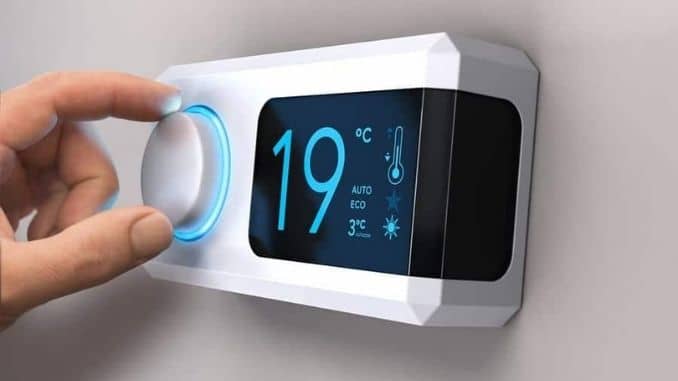
Falling asleep and sleeping well each night is essential for good health. Good sleep is, in fact, one of the most important parts of a healthy lifestyle. Unfortunately for some, quality sleep doesn’t happen every night. Aging, stress, overstimulation and insomnia are some of the obstacles that can make bedtime a frustrating and disappointing experience — night after night.
When it’s difficult to fall asleep and stay asleep through the night, it may seem logical to reach for an over-the-counter or prescription sleeping aid. However, both prescription and nonprescription sleeping pills come with the risk of unpleasant side effects and possible addiction.
Fortunately, there are many natural solutions to insomnia and frequent wakefulness at night. We’ve consulted experts, scoured the internet and personally tested some remedies so that we could recommend the very best natural ways to fall asleep and stay asleep through the night.
1. Calcium and Magnesium
Honestly, I figured this one out by accident. I had been struggling with sleep — really struggling. Every night, I was tired and wanted to sleep. But, I would lay there unable to sleep for hours. When I would finally doze off, I would wake up every couple of hours. It was miserable.
I had picked up a calcium and magnesium supplement on a vitamin sale that week, hoping to get more of those valuable nutrients in my diet. Anyway, I ended up taking the supplement before bed. That night, I slept like a tired baby — all through the night. I didn’t connect it to the supplement. However, I did take it again the next night. Again, I slept better than ever. That’s when it clicked. Right away, I Googled “calcium, magnesium and sleep.” I found loads of research on how these two minerals are excellent for helping us fall asleep and stay asleep.
Chronic insomnia is one of the primary indicators of a magnesium deficiency. Studies have confirmed that when the body is low in calcium, it’s difficult to achieve restful sleep all through the night. Certified nutritional consultant Phyllis A. Balch, author of “Prescription for Nutritional Healing, ” wrote, “A lack of the nutrients calcium and magnesium will cause you to wake up after a few hours and not be able to return to sleep.”
Choose a high-quality calcium and magnesium supplement. Take it in the evening, a couple of hours before bed to fall asleep easily and stay asleep. Look for a tablet with about 500 mg of calcium and 300 mg of magnesium.
2. Epsom Salt Bath
Epsom salt baths have long been known to help people get to sleep. While it may seem as simple as a relaxing, hot bath that soothes the senses, research has found that there’s more to the story.
Epsom salt is chemically known as magnesium sulfate. When you soak in a bath with Epsom salt for at least 10 minutes, your skin absorbs the magnesium for use in the body. As mentioned earlier, magnesium is essential for good sleep. In fact, Healthline researchers found that magnesium enables the brain to produce neurotransmitters that reduce stress and induce sleep. Furthermore, magnesium promotes the production of melatonin in the body. Melatonin is known as the sleep hormone.
Natural Ways to Fall Asleep and Stay Asleep: Just put 2 cups of Epsom salt into a warm bath and soak in it for 10 to 20 minutes before bed. Add some relaxing essential oils like lavender or mandarin for an extra benefit.
We wrote more about why Epsom salt baths are so good for us here on our blog if you’d like more reasons to soak in the tub.
3. 4-7-8 Method
Alternative medicine guru Dr. Andrew Weil pioneered something he calls the 4-7-8 breathing method. He claims that it can help you get to sleep and back to sleep if you wake in the night. I tried Dr. Weil’s method and had excellent results.
Here’s how it works. Dr. Weil explains his 4-7-8 method like this:
“In this exercise, you’re going to breathe in through your nose quietly. You’re going to blow air out forcefully through your mouth, making a ‘whoosh’ sound and pushing your lips out. The exercise begins by letting all the air out through your mouth. Close your mouth. Breathe in through your nose quietly to the count of four. Hold your breath for a count of seven. Then blow air out through your mouth to a count of eight. You’ll do that for a total of four breath cycles. That’s it. It takes all of about 30 seconds.”
Dr. Weil recommends practicing the 4-7-8 breathing method twice each day for a month. He says he does it right when he wakes each morning and again when he gets into bed before he falls asleep.
4. Light Matters
Your body’s circadian rhythm, also known as your sleep/wake cycle, is basically a body clock. According to the National Sleep Foundation, it’s a “24-hour internal clock that is running in the background of your brain and cycles between sleepiness and alertness at regular intervals.”
Your hypothalamus is the part of the brain that controls your circadian rhythm. The hypothalamus is affected by light and darkness. It communicates to the body based on the light exposure it receives.
First thing in the morning, go outside for a few minutes and stand in the sun. At the very least, open up your blinds and curtains to let natural light into your home or office. Spending time in the sunlight early signals your hypothalamus that it’s daytime, and you want to wake up and stay alert.
A couple of hours before you plan to go to sleep, turn off all the lights in your home except what’s essential. Try using a bathroom light with the door ajar or a hallway light so that your rooms aren’t filled with light, but you can see well enough to get around. If you like to watch television or work on your computer before bed, that’s OK. Just make sure you aren’t sitting too close to the screen. You can also get a blue-light reduction film to put over your screens to help reduce the type of light that interrupts your circadian rhythm. What’s most important is that you’re not sitting in a house full of light right up until bedtime. It’s difficult for the body to understand that it’s time to sleep when the rooms are bright.
5. Bedtime Meditation
If you have trouble sleeping but have never wholeheartedly tried meditating, you may be missing out on a simple solution for insomnia. Meditation is a helpful practice for all sorts of conditions, particularly sleeplessness.
Natural Ways to Fall Asleep and Stay Asleep: Take 10 minutes before bed to meditate. Once you’re finished setting your alarm and using the restroom before you go to sleep, lie down and close your eyes — of course, the room should be dark. Choose a word to use as your mantra. It can be any word as long as it doesn’t distract you. Then, repeat the word to yourself silently as you breathe normally. Every time your mind wanders in any direction, come back to the word and silently repeat it. Continue this meditation until you drift off to sleep.
You can use the 4-7-8 breathing method we outlined earlier just before you begin your meditation. For more ways to meditate and other relaxation techniques, read this article from our blog page.
6. Cool Down the House
Natural Ways to Fall Asleep and Stay Asleep: According to experts at the National Sleep Foundation, the ideal temperature for sleeping is 60 to 66 degrees Fahrenheit. That may seem chilly, but the circadian rhythm is affected by temperature. The body expects a lower temperature at night than during the day. So, instead of warming the house at night, keep it cool. If 65 degrees is too cool for you, put an extra blanket on the bed and snuggle in. You’ll likely sleep much better.
7. Limit Caffeine and Drinks
If you’re a coffee or tea drinker, you’ll be wise to stop taking in caffeine after noon. Give your body plenty of time off from caffeinated drinks during the afternoon and evening to avoid insomnia. Beware that even decaffeinated coffee often contains small amounts of caffeine. Consider herbal coffee as a sleep-friendly alternative later in the day.
It’s also smart to limit any type of beverages after 7 p.m. (or two hours before you plan to go to sleep). A full bladder can wake you in the middle of the night. The process of getting out of your warm bed, turning on a bathroom light and washing your hands afterward can interfere with your good night’s rest.
Seven Days to Better Sleep
If you’re plagued with sleeplessness, consider using one of these techniques each night for the next seven nights. If you find one that works for you, keep doing it and add in another tip the next night to see if it helps even more. Sweet dreams.
For more help combatting insomnia, check out our 14-Day Sleep Improvement Quick Start Program, here!





